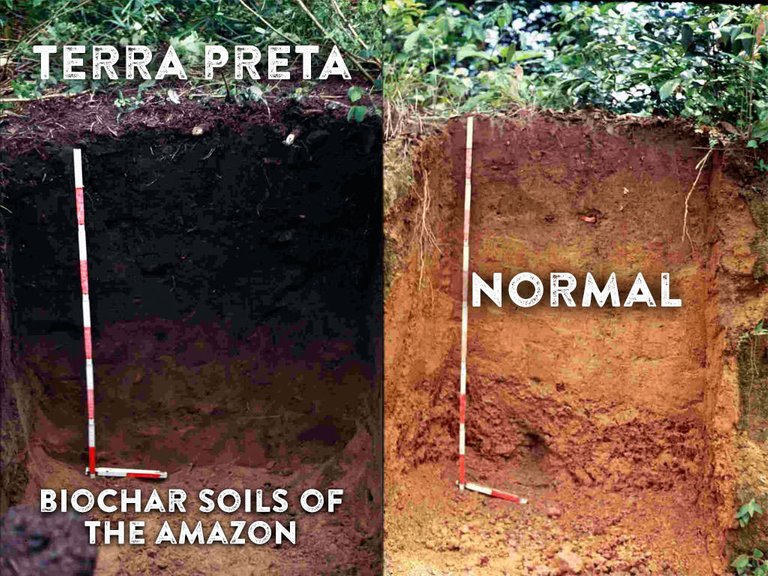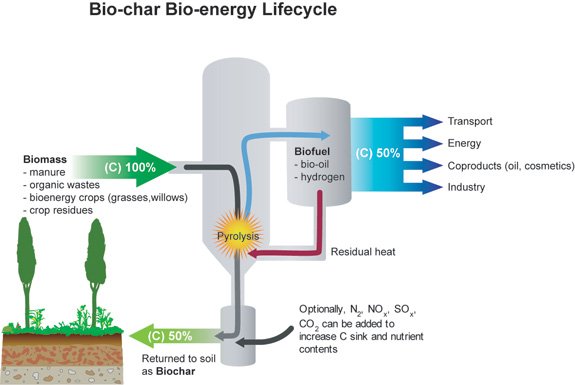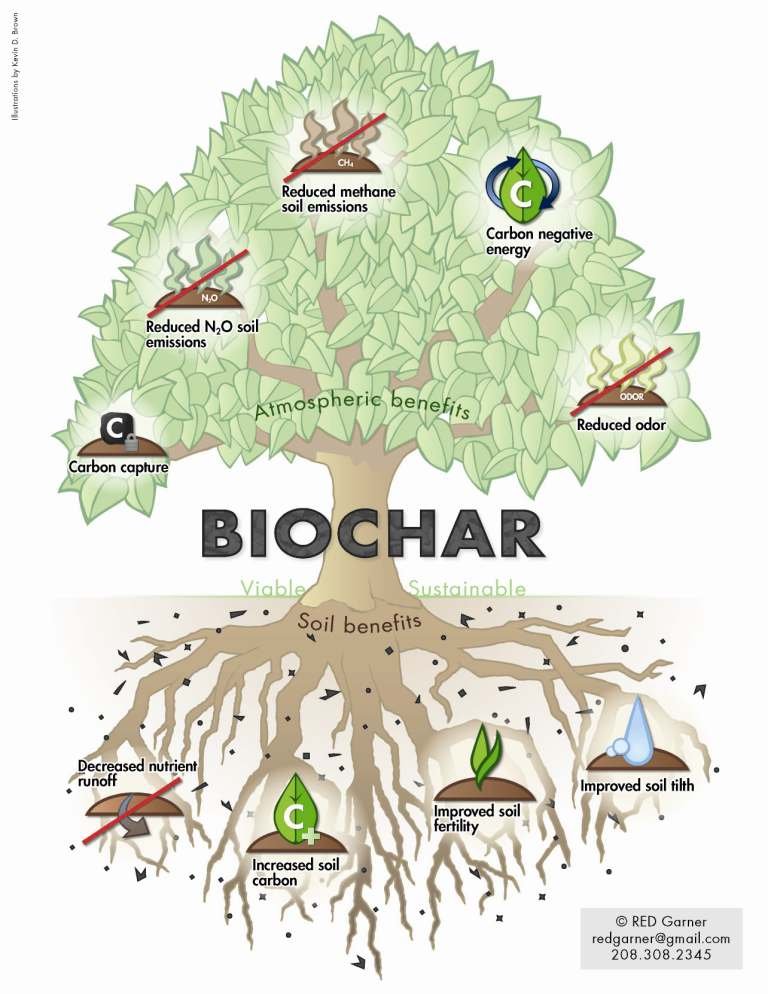Mitigation of Climate Changes with Biochar

Human population is getting larger and larger. Currently, there are 7,5 billion people and that number is expected to rise on 9 billion in 2050. Human population grows too fast to feed, even with advanced technology and modern cultivars and hybrids. Additional challenges are provided by climates changes which complicated using of natural resources. Climate change is a natural process that can be accelerated by anthropogenic activities which imitate greenhouse gases. Greenhouse gases (GHGs) are the main cause of climates changes because they can absorb and re-imitate sun's radiation within an infrared spectrum. With this mechanic, they "keep" sun radiation within Earth's atmosphere, and thereby increasing temperature.

Image Source
About biochar
Different research all around the world confirms that biochar has the ability to sequestrate carbon and reduce emissions of other GHGs. Biochar is a stable carbonate material, with a porous structure and good absorbing properties. Not only that biochar will reduce GHGs and mitigate climate changes, but he got the ability to increase soil fertility. By application of biochar in the soil, we will increase physical, chemical and biological soil's properties.

Image Source
Production of biochar
Biochar is made by pyrolysis of waste biomass. Conditions in pyrolysis and type of feedstock will affect his final properties. This allows us to made specific biochar for a specific type of soil. Example: feedstock with a lot of minerals, like it's wood, will give for alkaline biochar (pH > 10), therefore he will more suit an acidic soil (pH <5). In the other hand, we can use feedstock with fewer minerals in alkaline soils. When used for soil remediation, it's recommended to use biochar with more minerals because minerals are plants nutrients. And so on... There's is commercially available mobile units for pyrolysis that is suited for use in smaller farms.

Image Source
Conclusion
Despite a large number of research, many aspects of biochar application still remain unknown, thus opening space for new research that would trigger massive biochar application. Only with massive biochar application we can mitigate climate change and cover our problem with bad soils. We must have a global collaboration.

Image Source
Biochar is one way of improving production yields in poor soils around the world. There's also a case to be made for taking ruminant animals out of high density feed lots and putting them back on grasslands using holistic management techniques. There are so many ways we can use agriculture to reverse the problems of having too much atmospheric carbon everywhere. Thanks for posting!
Hey buddy, thanks for this epic comment. :)
I have a big luck to be given an opportunity for first-hand biochar research with my college mentor. We already made 2 years long outside experiment on both clay and sandy soil. We used wood as feedstock and the first year we saw wheat and another year corn. Results were just amazing, both in carbon sequestration and in increased soil fertility. Biochar is definitely next big thing that's coming in the future which will help us feed the whole population while mitigation climate changes.
Cheers. :)
Awesome. I've seen trials in the past which were pretty amazing. Please post more here so we can follow your work!
The Korean community had to deal with yoonjang and his affiliates' dealings a few months back, which you can see in @abdullar's translation of @atomrigs' original post. We suspected some major foul play when he jumped ship and claimed he was focusing on the Turkish community with baharoba after being ousted for circlejerk activities with affiliate/fake kr accounts.
Thank you for such a thorough report and your communal efforts @steeminator3000.
What a hell are you talking about here?
@jokster got you a $1.69 @minnowbooster upgoat, nice! (Image: pixabay.com)
Want a boost? Click here to read more!